Dutch authorities play down risk of Muslim backlash over burqa ban
 The Dutch foreign ministry on Monday played down media reports that it fears violent protests in the Muslim world against the country's proposed ban on face veils.
The Dutch foreign ministry on Monday played down media reports that it fears violent protests in the Muslim world against the country's proposed ban on face veils.
According to a document unearthed by the Algemeen Dagblad paper, the ministry had warned that such a ban might incite violent riots in Muslim countries like those seen after the publications of blasphemous caricatures depicting the revered Prophet Mohammed (Peace Be Upon Him) earlier this year.
Foreign ministry spokesman Herman van Gelderen told AFP that there was some mention of the possible problems of a burqa ban in a background briefing when Dutch Foreign Minister Ben Bot visited Saudi Arabia and Qatar in February this year at the height of the impious caricatures riots.
"Fortunately the climate has improved a lot since the (blasphemous) cartoon riots. Calm has returned and there is room for dialogue without tension mounting," he said.
On Friday the Dutch center-right government announced that it would introduce a bill to ban the wearing of face-covering clothing including Muslim veils like the burqa and the niqab in public places.
Van Gelder said the foreign ministry had not received many reactions from abroad.
On Sunday the Malaysian Foreign Minister Syed Hamid Albar criticised the proposed Dutch ban blasting it as discriminatory.
"Why can't people have the freedom to dress the way they want to dress," he asked.
"People can go naked and wear scanty dresses and yet you do not condemn them. And when people want to cover themselves that is their right," Syed Hamid added.
Van Gelderen recalled that in the Netherlands it is also forbidden to be naked in public spaces with the exception of several designated nude beaches.
The foreign ministry was quick to point out that ban did not only cover burqas but all face-covering garments.
In any case the ban was still only a proposal and it will take months before becoming law, if it ever will.
"We still have a very long way to go. This will definitely be a job for the new cabinet," justice ministry spokesman Wiebe Alkema told AFP, referring to Wednesday's general elections here.
It will take a lot of time and legal advice to draft the law which will be sent on to the Council of State, which has already shot down three law proposals made by hard-line Immigration Minister Rita Verdonk because of legal concerns that they could be discriminatory. With the burqa ban there are similar concerns. The minister said she would make a general ban of face covering clothing in public places including also balaclavas and motorcycle helmets to avoid discrimination but this poses a number of practical problems. What to do with veiled Christian brides or carnival revellers who traditionally dress up? Minister Verdonk has said that obviously exception would be made for such cases but such exceptions would make it difficult to argue that the law enforced a general ban.
In the past a special complaints commission on equal treatment has ruled that general bans that have a major impact on certain religious groups are also discriminatory.
If the burqa ban overcomes all of these hurdles it would still have to be voted on by parliament. Although the ban was initiated by parliament in 2005 after the elections, the political landscape is expected to alter and there might not be a majority for the bill, the latest polls show. The biggest opposition party, the labour PvdA, is against a general burqa ban.
"We are against a general ban because you can already use current laws to ban the wearing of face covering veils in certain public place like schools, courts or for certain people who work for the municipality or the government," PvdA integration spokesman Jeroen Dijsselbloem told AFP.
He condemned the sudden announcement of a burqa ban on Friday "pure symbolic politics".
"It's no coincidence this comes just days before the general election," he added.

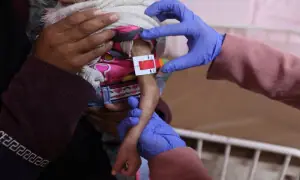
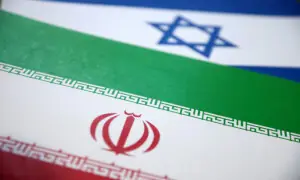

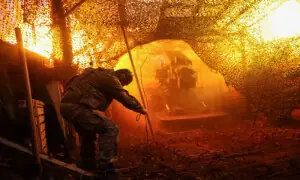
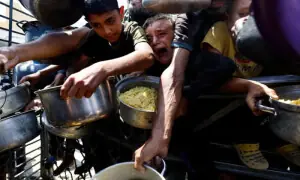
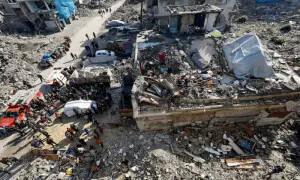

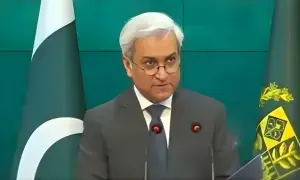

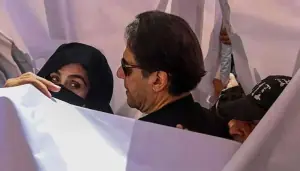


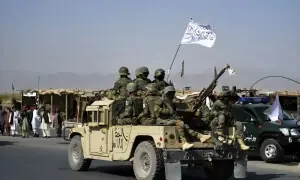
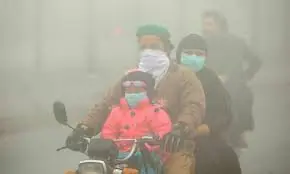
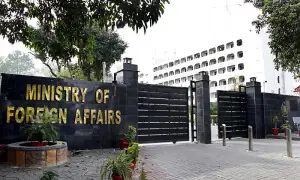

Comments are closed on this story.